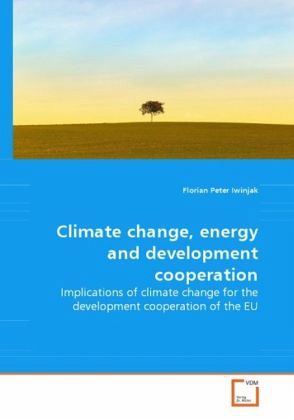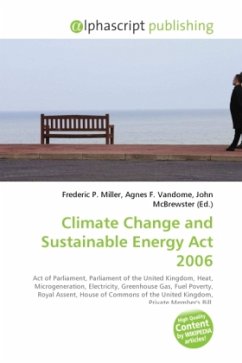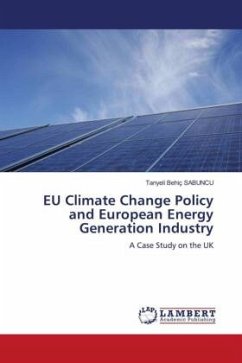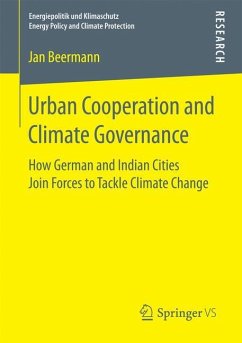
Climate change, energy and development cooperation
Implications of climate change for the development cooperation of the EU
Versandkostenfrei!
Versandfertig in 6-10 Tagen
52,99 €
inkl. MwSt.

PAYBACK Punkte
26 °P sammeln!
Climate change is highly relevant for development policy since it is closely linked to energy and will have strong repercussions on human development. It also brings along a problem of justice because those who are most affected bear less responsibility for its occurrence. Within the European Union climate change as an issue has recently seen a rapid rise because sustainable development has become a social norm, mutual learning and relying on scientific results have contributed to a high problem consciousness and demand for action. Fighting climate change also contributes to the EU s competiti...
Climate change is highly relevant for development policy since it is closely linked to energy and will have strong repercussions on human development. It also brings along a problem of justice because those who are most affected bear less responsibility for its occurrence. Within the European Union climate change as an issue has recently seen a rapid rise because sustainable development has become a social norm, mutual learning and relying on scientific results have contributed to a high problem consciousness and demand for action. Fighting climate change also contributes to the EU s competitiveness and security of energy supply. In 2004 the EU tread new paths by making climate change an integral part of its development cooperation rolling out an action plan. However, in practice many difficulties remain in putting current plans into action. This book explores the reasons for these difficulties and traces recent developments in the EU climate change policy and development cooperation, including two case studies on China and South Africa. It is mainly written for policy makers, social scientists and students interested in these issues and policy making of the EU.












